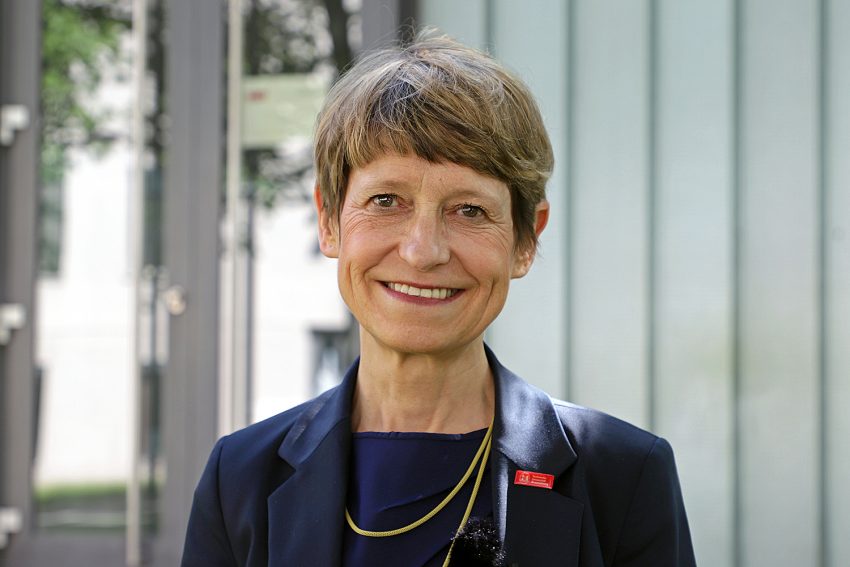Spotlight: Sufficient scope for top-level research Topics and highlights of the President’s schedule
I am very pleased that you regularly give me feedback on my ‘Spotlight’ postings. Today I’ve decided to look at how research can benefit our university and to outline what form our future strategic approach will take. I am privileged to have gained extensive insights into all sorts of current projects and concepts. My primary responsibility in this regard, I believe, is to promote the available potential and to encourage and support the formation of research networks in the national and international arena both within and without TU Braunschweig. And, of course, I need to be up to date and well-informed with regard to our outstanding research activities and also communicate this to others.
Due to the wide range of subjects, universities with a focus on STEM disciplines, such as ours, are not only able but have a special responsibility to address current global and social challenges holistically in research and teaching. In order to live up to this claim, we have to actively support interdisciplinary collaborative projects that define and enable new standards for basic and application-oriented research and for new formats of transfer in and with the community.
When it comes to our research focuses, clusters of excellence, institutes and projects, TU Braunschweig is particularly well-positioned. And it is self-evident that research is also at the core of the strategic planning of the President’s Office, in cooperation, in subject and policy terms, with that section of the President’s Office responsible for research while active and effective promotion of research also takes centre stage. Moreover, this area forms an essential part of our plan of action for the future. We reviewed in detail research and knowledge transfer in the context of the University Development Initiative on 20 December.
What motivates me is the question of what I can do as President to best support and stimulate our research. A look at the reports of the Excellence Strategy of the German federal government and the states and those of other such initiative processes clearly reveals the tasks that the President’s Office should be taking on. In fact, top-level research is not our only concern, although it remains an essential foundation that we still need to consolidate. How to integrate the aspects of diversity, internationalisation, digitalisation and knowledge exchange and transfer in our research undertakings at the outset is a factor on which we are placing an emphasis as enables us to produce internationally compatible research. Major and promising projects of research networks are doomed to failure if the underlying groundwork is not stable enough. And the associated challenges cannot be overcome by the researchers on their own – we all need to contribute here: faculties, focus areas, clusters, not to mention the administration and central facilities. Only when we have together found solutions will we be able to improve our standing in the context of national and international research.
The need to improve our interdisciplinary approach is another core aspect that will influence our future development. All technical universities will find it particularly advantageous to combine the humanities with the educational sciences. I see very promising prospects in this connection and plan to foster this by means of new concepts and projects.
As President, I intend to work closely with the Vice President for Research and Early Career Scientists to ensure that a suitable basis is in place on which our researchers can undertake their projects and also be successful in tendering procedures and in competitions. In other words: we all need to collaborate to provide for comprehensive excellence throughout the university so that sufficient scope for top-level research is provided.

